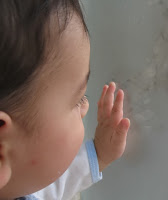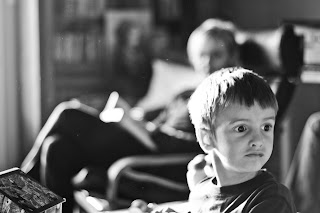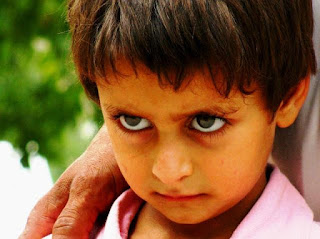Because February is the month of love, I will be writing
this month’s posts about virtues. Today’s virtue, for no real reason, is
curiosity…
How does curiosity related to both compassion and vocabulary
in young people?
One way is that without curiosity about the world around us,
we won’t learn new words, like what ‘fleek’ or ‘code 9’ mean, and we’ll be
impaired in our interactions with others. That’s maybe bad, although it’s
popular for the older generation to calcify and be unbending about what
qualifies as a ‘real’ word, ‘real’ usage, ‘real’ pronunciation, or ‘real’
music… fashion, art, movies, whatever. Do we want to become those out-of-touch
folks?
I don’t. But that’s less to do with parenting, and
vocabulary in young children. Middle school kids make up their own vocabulary
(or find it online –urbandictionary, btw, is the source and solution for that,
although it seems to be taken over by grumpy old fogies who judge the words
instead of simply defining them, so perhaps soon urbandictionary will be
supplanted by something fleek…) but in order to get to that point, one has to
be able to converse comfortably with the people around about the world around…
… and that comes from having the vocabulary to even think
about it.
Some of the everyday messages our culture sends to kids are
impediments to this vocabulary development.
When kids learn that ‘all noisy kids are bad kids’ they
don’t learn to distinguish in themselves or others the nuances of feelings that
provoke loudness –fury, enthusiasm, terror, grief, excitement, disappointment,
dejection, rage, anxiety, pain, ambivalence, boredom, annoyance, irritation,
aggravation, agitation… All they end up with in the ways to express themselves
to be understood is shouting, feeling ‘bad’ and being ‘upset.’
Without the words, we
can’t think
In a book I read (I really should take better notes) it was
posited that without the vocabulary to think about the world around us and
within us, we are trapped in an internal experience that we can’t describe or
understand, because we simply can’t think about it at all. We think in words.
Without thinking, we
can’t learn
From having the vocabulary that describes what we’re seeing
and interacting with and discovering how we feel about it all, we can broaden
our experience of life to include what others are seeing and interacting with,
including how it seems to make them feel. That is: when we have the vocabulary
to share, we can learn how differently we can see, understand, think about and
respond to the world and our feelings about all of that.
This learning is the basis of compassion.
Without learning,
there is no compassion
When we learn the words to describe our own experience,
internal and external, we simultaneously learn the words others use to describe
their experiences, internal and external.
This is telepathy: the minds joining
in the space between them, to hear and be heard, to understand and feel
understood, to feel and to feel felt
–as Daniel J. Siegel describes in his many books (Parenting from the Inside Out, Mindsight,
etc.)
We can’t do it if we don’t have the words.
The words are made from the world.
The world is here to explore, and human brains are
instinctively attuned to explore, to understand the world around us, from
before we are born as we become familiar with the voices closest to us, and the
sounds they use to make meaning. From there, we race to understand the music,
the words, the sensations, the sights and flavours, as quickly as we can.
What can go wrong if
curiosity isn’t present
When we are with people, in the early stages, who are ‘busy’
doing ‘important’ things –on their phones, with the tv or computer, or silently
in the house or facility—or we spend our days surrounded by people mostly our
own age who are physically watched over by too few adults to interact with
about most of what we’re experiencing, or in environments that are unsafe to
explore (or banned from exploring) we learn what little we can divine mostly by
ourselves, particularly what is happening within us. This desert of curiosity
leaves us without the natural support we need to feel normal in wondering and
asking, and without the vocabulary we need to even form the questions.
When we are with carers who ‘already know’ what’s going on
for us, who we are and what we’re worth –who tell us we’re not hungry when our
stomachs are churning because the clock doesn’t say ‘hungry time’ on it yet, or
that we’re not sad or scared or lonely or hurt when we are, or who tell us
we’re bad people for being alive, making noise, making messes, making poop, or
needing more than they expect us to need, our learning is impaired because our
experience is not what we are told it is. The words we learn don’t mean what
we’re told they mean. This is confusing, alienating and leads to dissociation
from our bodies, and self-loathing.
In each of these scenarios, children grow up without
understanding themselves or their world accurately (or at all), always only
coping and struggling and compensating for what they never got that they
needed. They learn to judge, blame, evade blame, self-medicate, distract and
ignore… themselves and others. This impairs their ability to feel curious about
the world, themselves or others. It is that lack of curiosity that ultimately
impedes compassion, for themselves and others.
Now that we can see clearly why compassion matters so much,
and how curiosity is linked to it, so now we can help our children:
10 Ways to be Curious
and Build Compassion
- Answer questions to the best of your ability, and, when you don’t know the answer demonstrate how to look answers up, how to wonder about their accuracy, and what else might be connected to the subject
- Look up answers you are certain of, because information changes over time and what you learned 15 years ago may not have been true at the time
- Share discoveries you make in your world, whether it’s a way of making your work run more smoothly, a new play strategy in your favourite game, or an ingredient you didn’t know how to use, or a way of driving that makes it safer, or an investment strategy that you’re investigating … curiosity breeds curiosity
- Wonder why others feel or act as they do, and talk about possibilities: what they might be feeling or thinking that leads them to feel that choice is sensible or effective to them
- Notice body posture, gestures, facial expressions and vocal tones around you –on the radio or in movies, or live as you watch the passing parade on the streets, watching from your window or what you see from the car, and describe them: shoulders slumped, big smile, crushed eyes, swagger stride, shaky voice, clipped speech, snappy replies, placid face, touching hair, leaning in, leaning away, et cetera
- Talk about the words for those postures, gestures, facial expressions and vocal tones: dejected, excited, nervous, distracted, depressed, timid, confident, et cetera
- Ask yourself out loud why you acted as you did: what was I thinking? What was I hoping would happen? How was I feeling? What could I have done differently that would have ended up with a different result?
- Observe out loud, in neutral terms (like a camera would record the details, without judgement or evaluation, and without attributing intent or character flaws) what the child was thinking, trying to accomplish, or feeling before they acted the way they did
- Speculate about how you would feel if, or how you did feel when, something happened to you –good or bad: how you would react if you won a lottery, got invited to a special event, lost something valuable, damaged the car, et cetera
- Lead kids to consider how they think they might feel if something amazing happened, or something tragic happened, or if they were where the news report is, or what it might be like to visit astonishing sights like the pyramids in Mexico, or the glaciers in Norway, or Easter Island


















